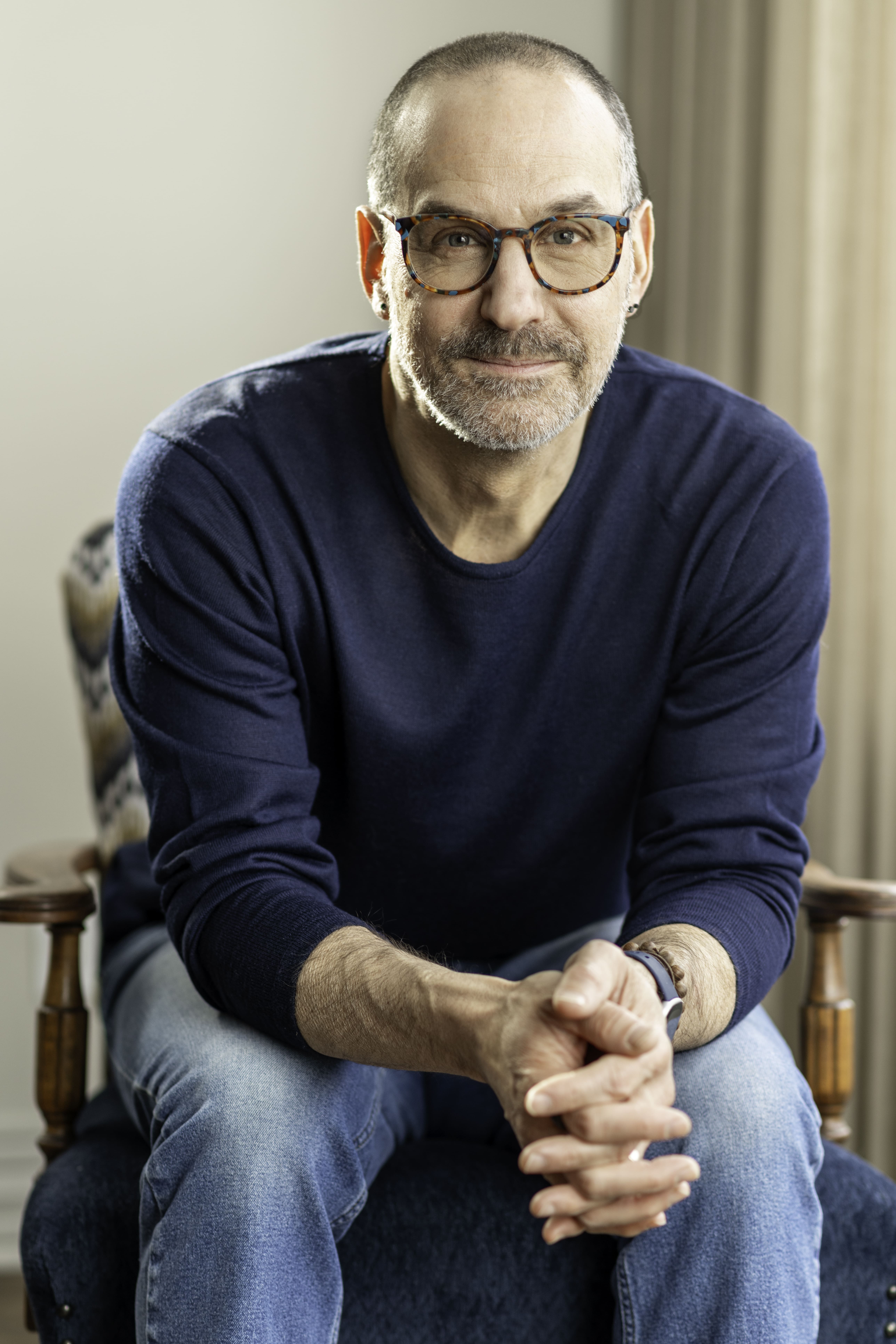Advertisement
As You Go Along
Improv lessons help care for young and old

All the world is not a stage. Though, from the age of two, I desperately wished it were. Now, after years of character study and delivering stand-up routines across Canada, I understand what a great piece of theatre life really is.
I used to dream of acting. Theatre alone brought my high school average out of the basement. I enrolled in chemistry, and physics, and math. “I’m going to become a doctor,” I would say. Though what I really wanted was to play one on TV.
It was always acting.
The play was the thing.
I continued to study performance art throughout college, which led me to stand-up comedy. Anything for the adrenalin rush of immediate feedback and living on wits alone.
Little did I know that, at age 46, I would be relying on my wits and my improvisational skills more than I ever had during rehearsals.
Now, I am not only a husband and a father. My lifelong role as a son has metamorphosed into that of caregiver to a mother afflicted with Alzheimer’s disease. She was diagnosed in April of 2017. Since then, there has been a tumbling of medical dominoes leaving her an altogether different person than the parent I grew up with.
“Altogether” is ironic, since she is really now several different pieces of a whole.
For every action there is an equal and opposite reaction (the one law I remember from high school science class). When a relative receives a diagnosis of Alzheimer’s, those close to them usually react with panic, and Google searches.
That’s what I did.
There are three stages to Alzheimer’s: mild, moderate, and severe.
Notice that these are not three types of Alzheimer’s. They are stages. They are consecutive and inevitable, like three acts of a play.
The difference is, unlike actors with a script, patients and their minds and their bodies are unique, and, thus, unpredictable.
I had no lines I could memorize (and no movie I could watch) to prepare me for the plot twists and unpredictability of having a parent with dementia.
Advertisement
Prepare for the unexpected
Caroline Menard is a psychologist and coordinator of the Behavioral and Psychological Symptoms of Dementia team at the University of Montreal Geriatric Institute. She says it’s important to prepare for the unexpected when caring for somebody afflicted with the disease.
“You can’t plan. You can’t tell yourself, ‘This is how it will be,’” says Menard. “It really varies from patient to patient, and that’s why even the treatment has to be personalized for each individual.”
As with any role on a screen or stage, the actor brings with him or herself an undercurrent to a character. Mel Gibson’s Hamlet was far different from Sir Laurence Olivier’s. Similarly, explains Menard, a patient’s life story has a vital impact on how the personality may or may not change throughout a cognitive decline: “Who was this person prior to becoming ill? What was significant to them? What did they love doing? … In my opinion, learning these things is a fundamental part of providing personalized care.”
Advertisement
Show respect, not condescension
Sabrina Dion couldn’t agree more. She is a registered nurse at a private residence that specializes in caring for men and women who have begun to lose their autonomy. She says it is a mistake to generalize when interacting with those battling Alzheimer’s. She says it is too easy and common to use a metaphor of adults becoming children again. These are not people choosing a different role.
“They had great jobs; they are intelligent individuals,” says Dion. “They’re artists; they’re scientists. They’re the same person. The thing is there have been changes, so their perspective and the way they present is just different. So, it’s never okay to treat them like a child. It’s never okay to not offer that same respect, because they are the same person.”
Advertisement
But what of their children?
Many of us are in what is referred to as the “Sandwich Generation.” We have young children who depend on our maturity, our guidance, and our energy. However, becoming a caregiver—especially to a parent who is becoming cognitively deficient—can be a draining challenge. It can not only demand much of our time, but also trigger overpowering feelings of guilt.
Ironically, according to an Alzheimers.net blog post, the first of “6 Ways to Look After a Parent with Alzheimer’s” is scheduling.
For many parents of young children, often the only thing that is predictable and routine is a sense of general fatigue, and occasional panic that you’ve forgotten something.
Conversely, Home Care Assistance, which specializes in all levels of care for the elderly, emphasizes an improvisational approach to dementia: “There are no mistakes, only opportunities.”

Advertisement
Beware of burnout
Caregiver burnout is a real danger. Often you don’t realize you’re a victim of it until someone else points out that you’ve become short-tempered, overtired, and emotionally drained. Whatever script you feel you must follow, you always need someone to help you run the lines. Menard reminds us that shouldering a burden alone is often detrimental.
“It is not wrong to ask for help, even if it’s only to better understand the disease. You have to express your emotions, which is not easy when you’re going through something like this … It is very stressful to play several roles during a period when you’re working and you have young children.”
Dion concurs that we can only do what we can, and she says we should give ourselves credit for doing what is realistic and for trusting our hearts and our instincts.
“Remember that, whatever choice you’re making, again, if it’s for your parent’s best interests, it’s always the right decision. And you have to understand that you have permission to live your life and raise your own children. It’s the natural cycle of life,” says Dion.
Advertisement
Develop improv theatre skills
I’ve noticed several platforms such as OpenIDEO offer online demonstrations of improv courses for caregivers. Wouldn’t it be ironic if the struggles in this life I’ve settled into are, for me, what triggers a return to an improvised stage?
Perhaps, as I get on in years, theatre is something I can return to. For now, though, the spotlight will remain on my family and my well-being, with my parents hopefully benefiting from its glow.





